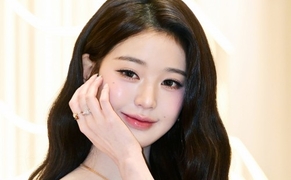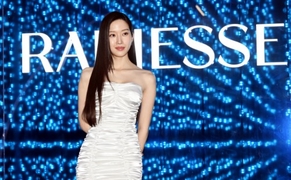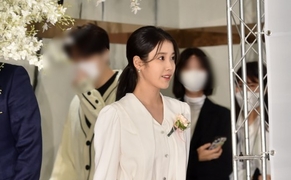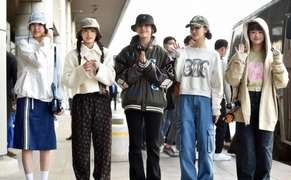"Yuzuru", a representing masterpiece of Japanese opera, faithful to the original work
 |
| A scene from ‘Yuzuru' by Tokyo’s Fujiwara Opera Company/ Source: Fujiwara Opera Company |
“Yuzuru(The Twilight Heron, 夕鶴)”, a one-act opera composed by Japanese composer Ikuma Dan, premiered at the Asahi Hall in Osaka in 1952. Since then, it has performed more than 800 times at home and abroad, and has the largest number of performances in the history of Japanese opera, and is considered the beginning of the work that confirmed the possibility of opera in Japanese. In 1949, playwright Junji Kinoshita created a Japanese folk tale called “The Crane’s Wife which is similar to the Korean folk tale “The Crane Who Returned Grace” as a play called “Yuzuru” Composer Dan Ikuma released the play as an opera under the condition that “not even a single word in the script can be modified.”
The reason why "Yuzuru" has been recognized as Japan's representative creative opera so far is that the number of times produced by numerous producers and productions in Japan has been accumulated sequentially. It is also because it is a Japanese opera that is recognized for its artistic quality overseas. Starting with a performance in Zurich in 1957, this piece has been performed in overseas dozens of times. Dan Ikuma has revealed that he planned and composed this work as a Japanese opera targeting the world stage from the beginning.
The reason of this opera has been recognized to such an extent that Western opera houses now perform it with their own is because of the universal theme of the opposition between pure nature represented by crane and desire symbolized by humans and between pure love and human greed that has lost reason in front of money. "Yuzuru" is still performed by various Japanese opera organizations today. I have been visiting and watching "Yuzuru" performances performed in Japan for the past few years to study East Asian opera, and this time I came to see "Yuzuru" performed by the Fujiwara Opera Company, a historic Japanese private opera company.
Excluding about 10 children's choir, only 4 people appear in the work. With only a small number of performers and the stage set is also only cottage in the mountain where the main character and his wife live, the fairly simple stage can be set up flexibly.In this opera, only a Japanese-style house symbolizing the couple's house was built on the stage where the classical perspective was applied.
In the beginning, these stages looked too simple, but because they were faithful to the original form of the work against the backdrop of the poor mountain scenery, the vocalist did not have to make unnecessary movements, and it was rather good to focus on the stage, auditorium, or music.
Tatsuji Iwata's direction was developed in a form faithful to the original and tradition of the work. The movement of the surroundings was minimized and only the main character's anguish and conflict were focused. The lyrical scenery of the snowy mountain and the innocent chorus of children highlighted the pitifulness of the woman victimized by her husband's greed in contrast.
 |
| A scene from ‘Yuzuru' by Tokyo’s Fujiwara Opera Company/ Source: Fujiwara Opera Company |
The performance was held as a double cast on the 1st and 2nd day. On this day Mieko Sato, who plays the role of crane wife Tsu, is playing the leading soprano role of Fujiwara Opera. She played with a powerful tone based on a rich voice that was incredible for her small body. She particularly appealed in Tsu's aria, which had a strong sense of traditional Japanese melody. Her acting skills were also outstanding, and she successfully completed the image of a tragic woman by expressing recitative lines unique to early East Asian operas, where the distinction between opera and musical drama is not clear, and leaping pitches.
In addition, tenor Takuya Fujita in the role of Yohyo, the simple but foolish husband, baritone Hiroyuki Ehara in the role of Unzu, an acquaintance who impulsively tries to reveal the identity of his crane wife, and bass Taro Shimose who sang Sodo did their part. In particular, Hiroyuki Ehara is currently active as a famous entertainer, so fans cheered very loudly to support him. As long as it does not break the balance of the work, the casting of such popular person could positively contribute to the revitalization of creative opera.
The music composed by Ikuma Dan uses a splendid orchestration reminiscent of Richard Strauss while adding traditional Japanese melodies. Orchestra del Teatro Giglio Showa, conducted by Maiku Shibata played well with these musical characteristics. In particular, the pizzicato of strings, obbligato of flute and oboe in Cavatina of Unzu were outstanding.
As the composer mentioned, the opera “Yuzuru” contains a strong desire to create a Japanese opera to be presented on the world stage. As seen in the Fujiwara Opera's performance this time, the project is still ongoing. If one of the important elements in performing arts is considered persistence, "Yuzuru" may have already achieved its goal.
/ Sooyeoun Sohn (Opera critic/ Professor at Dankook University)
 |
Translation: Daegon Wie
#Yuzuru #Fujiwara Opera Company
Copyright by Asiatoday
Most Read
-
1
-
2
-
3
-
4
-
5
-
6
-
7





















